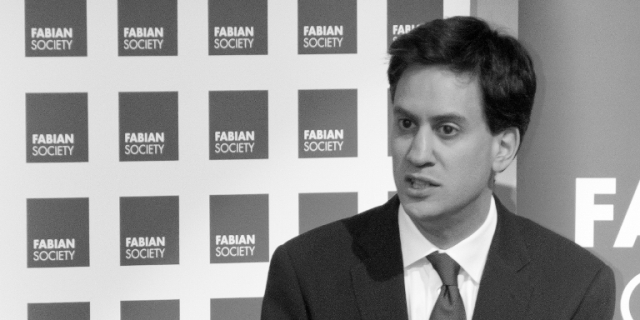Some thoughts on The Fabian New Year Conference 2013 Blog
Blogs, New in Ceasefire, Politics - Posted on Wednesday, January 16, 2013 0:00 - 0 Comments

Reporting on last year’s Fabian Annual Conference, I suggested that the abject failure of the mainstream left to formulate a credible alternative to the coalition mantra of cuts and austerity might create a new space for radical and progressive voices to take the initiative. The extent to which that has happened over the past twelve months is open to debate. Over this period, however, popular anger at the actions of Cameron’s government has only swelled; not only are the cuts continuing to have real and demonstrable effects on communities across Britain, but the prospect of economic recovery – ostensibly the principle on which Cameron’s programme of austerity was founded – appears ever more remote, with an unprecedented triple-dip recession seemingly on the cards.
So what could this year’s conference tell us about how this anger might be channeled into a coherent programme? Ed Miliband’s keynote speech was something of a mixed bag. This is, of course, the easiest speech Miliband has to make all year; whilst the Fabian crowd lapped it up, his wonkish delivery still reeks of New Labour apparatchik. While the focus of the speech was on the narrative of ‘One Nation Labour’ – a concept still pitifully indistinguishable from Cameron’s own thoroughly discredited ‘Big Society’ – there were some encouraging signs: specifically, a commitment to the Living Wage, and indications that Labour might be finally prepared to distance themselves from Trident in 2015.
All of this was, of course, met with thunderous applause by the party faithful. The prevalent mood throughout the day was noticeably more positive than last year’s occasionally cagey atmosphere; the general feeling seemed to be that, with the Tories there for the taking, the real struggle was going to be how many genuinely progressive policies could be smuggled into Labour’s next manifesto. With that in mind, the likes of Owen Jones made the case for the radical expansion of social housing provision, and the re-nationalisation of rail networks as franchises become available over the coming years.
Elsewhere, however, there were continuing reasons to think that Labour will be hard to differentiate from the Conservative and Lib Dem positions at the next election; this is particularly true of their attitude to the cuts. Whilst it’s fair enough to say that this is too early a point to start formulating a detailed economic policy to take to the electorate in 2015, Ed Balls’ feeble maxim of ‘too far, too fast’ remains wholly inadequate as a response to the wholesale gutting of public services we have seen over the last two-and-a-half years. Lord Adonis, meanwhile, expressed worrying approval for a whole range of Michael Gove’s education policies, support that was called into question by concerned teachers and school governors elsewhere at the conference.
It was heartening to see some admissions of prior mistakes. The colossal failure, equally attributable to the radical left, to engage with the wider public on the question of migration and its effects was acknowledged by a number of speakers. The pressing question that remains, however, is whether Labour’s response to this issue will take the form of positive consciousness-raising, or concessions to bigotry lifted from the manifestoes of the Conservative Party and UKIP. For as long as Labour requires populist vote-winners to see off the Tories, the threat of the latter remains a concern. Anyone wanting to see any more than that in terms of apologies for thirteen years of rightward drift under New Labour was, of course, going to be disappointed; any mention of the war in Iraq, for example, was conspicuous by its absence.
The overall tone was of a party that was confident of victory over a Conservative party in internal disarray, and a Lib Dem rump assured of parliamentary obliteration. These are circumstances that the progressive left can continue to exploit outside the frameworks of electoral politics, but there are also signs that pressure from within the party membership could lead to the appearance of policies in the next manifesto that could make a real difference to the lives of working people. Whether this confidence lasts long enough for such pressure to take effect will be the big question over the coming year.


Leave a Reply